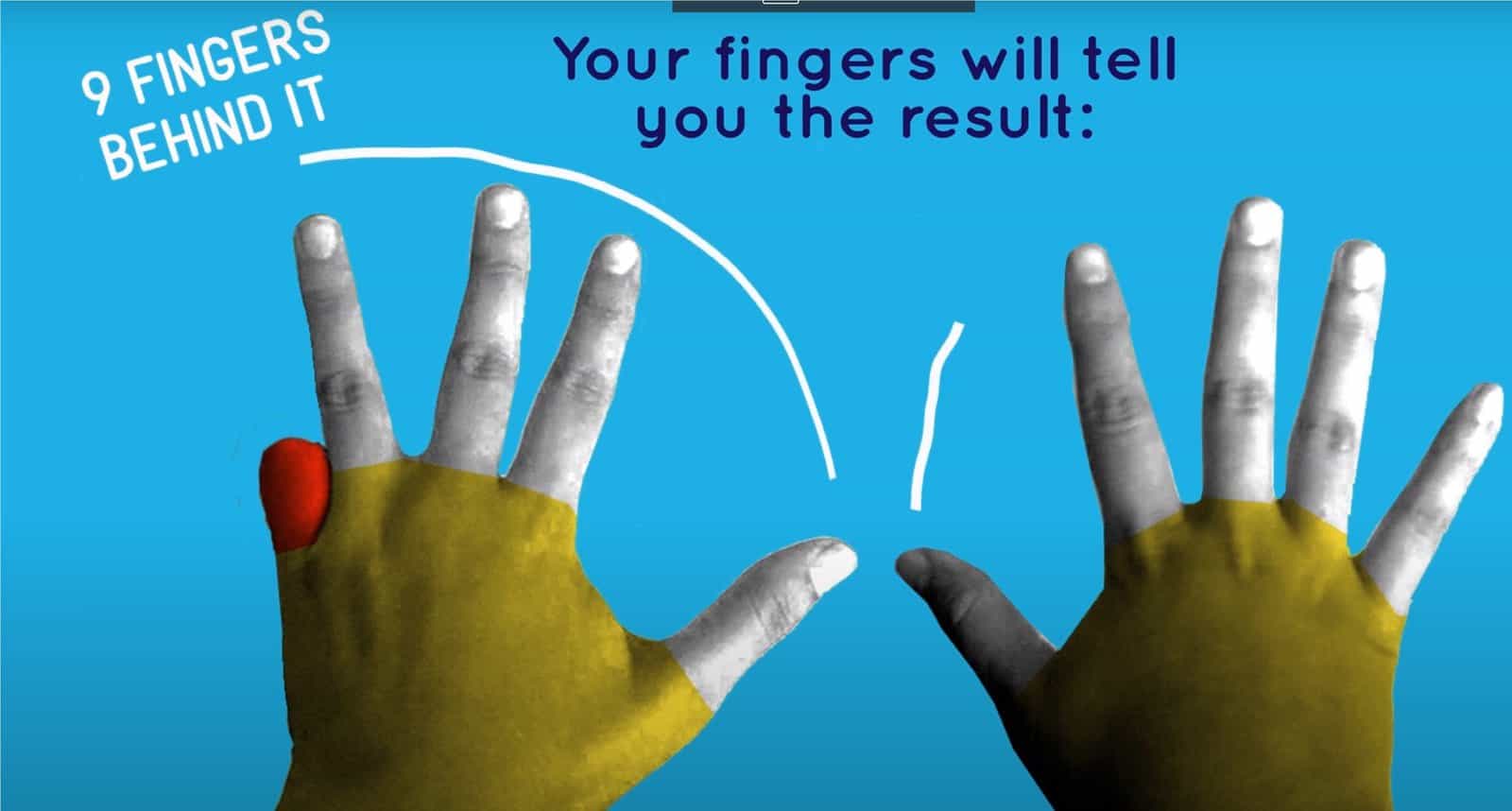
Are You a Mathemagician? Unlock the Secrets of Math Magic
Table of Contents
Are you a mathematician? This maths video is a really fun and interactive way to get your child practising their mental maths. A great maths trick puzzle with simple, easy-to-follow steps which will always reach the same outcome. A great resource for encouraging independence and mathematical vocabulary development. Magic Maths and Maths tricks that will amaze just about anyone!
Do you want to explore mathematics tricks?
Since this is a magical math trick, it means that the game is divided into two different sections: the first one is related to the calculations which will be done by the player according to the number they choose, and the second section is related to the magical part of guessing the answers and letting the people get amazed.
First of all, one of the important tips for this trick to let the magic work is to let the player do the calculations privately without showing you any of them or even telling you the number they have chosen. This is important because if you knew the number, you could do the calculations, and it won’t be called magic anymore.
There are three different steps that the player should go through with the game: first, to choose a number; second, to reverse the digits of that number; and third, to take away the smaller number from the larger one. This is part of the player, while the one giving the orders will then ask either about the hundreds or else the units digit in order to guess the other one.
There are some facts which the kid should always know while playing this trick in order to handle the magic that will happen at the end. The first fact is that the tens digit in the final number will always be nine, so the kid could give it as a guess on their own.
The second fact is that the hundreds digit plus the units digit will always be nine in total, so they will choose one to ask about, do the calculation in their mind about which number would give a 9 if added to the number the player gave them, and then guess the digit they did not ask about or else guess the whole final answer and let the magic work.

While the kids are still in the phase of practising this trick on themselves before they go forward with tricking their friends and family, they will be learning how to subtract big numbers. Subtraction is easy but tricky for young ages as well, and when it comes to those big numbers, they should always make sure they are placing them correctly under one another to take away the right numbers from one another. One of the important tips in subtraction is teaching the child more about how to take away from the next number if the number is small and the other one cannot be taken away from it.
These tricks are interesting to use for the child because we believe it combines learning and playing; they play and do these tricks on their family and friends while at the same time learning to do some mental calculations in their heads and also learn subtraction and how to subtract.
There are different other tricks that follow the same idea of getting the same final answer at the end but which follow different steps and different calculations.
Check these educational maths videos to learn more tricks:
On the other side, kids could learn subtraction through lots of different methods and ways, it could be through such tricks, it could be through playing games, and it could be also through ordinary ways with a little bit of help from the parents, and that’s exactly what we are trying to offer you for homeschooling your kids, a little bit of help to make math a lot easier for them.
These tricks give the kids more self-confidence when it comes to math because they will be performing some tricks on their friends and will be getting the right answers, along with being very good when it comes to subtraction.
Types of Mathemagicians: Unlocking the Magic of Math
The world of “Mathemagician” isn’t confined to a single mold! Just like the diverse applications of math itself, there are several fascinating ways individuals use their mathematical prowess to captivate and inspire others. Here’s a glimpse into some of the different types of Mathemagicians:
1. Stage Performers:
These are the dazzling stars known for their mind-blowing illusions and feats of mental calculation. They blend mathematical principles with sleight of hand, quick thinking, and theatrical flair to create jaw-dropping performances that leave audiences spellbound. Think of Martin Gardner, Arthur Benjamin, and the countless others who have used their mathematical talents to entertain and amaze.
2. Mathematical Educators:
These are the passionate individuals who translate the complexities of math into engaging and accessible experiences for learners of all ages. They use creative teaching methods, storytelling, and even humor to ignite a love for mathematics in students. Think of Marilyn Burns, Dan Meyer, and the countless math educators who are making learning fun and meaningful.
3. Mental Math Experts:
These are the human calculators with seemingly superhuman abilities to solve complex problems in their heads, often faster than most people can with a calculator. They may compete in mental math competitions, showcase their talents on stage, or even contribute to research in memory and cognition. Think of Scott Flansburg, Alexis Lemaire, and the countless individuals who push the boundaries of mental manipulation.
4. Mathematical Game Designers:
These are the creative minds behind the engaging world of mathematical games and puzzles. They use their knowledge of math to design brain-teasers, logic puzzles, and strategic games that challenge and entertain while encouraging critical thinking and problem-solving skills. Think of Sid Sackson, James Ernest, and the countless game designers who are making learning math a fun and interactive experience.
5. Mathematical Magicians (Blending Education and Performance):
This category encompasses individuals who bridge the gap between education and entertainment. They use their mathematical expertise to create interactive workshops, demonstrations, and shows that both educate and entertain audiences of all ages. They might perform card tricks with mathematical principles, explain mind-blowing illusions based on geometry, or use magic to teach essential mathematical concepts.
Beyond the Magic: Benefits of Being a Mathemagician
Being a Mathemagician isn’t just about dazzling audiences with tricks or mastering mental calculations. It’s about harnessing the power of math to unlock countless benefits for yourself and others. Dive deep into the advantages that await those who embrace the world of Mathemagicians:

Personal Growth:
- Sharpened Thinking: Math is a constant exercise in logic, analysis, and critical reasoning. As a mathematician, you’ll hone these skills, enabling you to approach problems creatively and find solutions others might miss.
- Problem-Solving Prowess: From designing tricks to explaining complex concepts, Mathemagicians thrive on solving problems in innovative ways. This skillset transcends math, empowering you to tackle challenges in all aspects of life.
- Confidence Boost: Mastering mental agility and captivating audiences with mathematical feats builds confidence in your abilities. This newfound confidence spills over into other areas, empowering you to pursue your goals with newfound self-assurance.
Educational Impact:
- Making Math Meaningful: Whether captivating students with captivating tricks or demonstrating real-world applications, mathematicians make math come alive for learners of all ages. This can ignite a passion for math and nurture future generations of problem-solvers.
- Engaging Teaching Methods: As a mathematician, your toolbox overflows with creative teaching methods, games, and activities. This makes learning fun and interactive, engaging students and fostering a positive attitude towards math.
- Communication and Collaboration: Explaining complex concepts requires clear communication and the ability to connect with your audience. As a mathematician, you hone these skills, making you a more effective communicator and collaborator in any setting.
Professional Opportunities:
- Diverse Career Paths: Mathemagicians don’t just perform magic shows! Their skills are valuable in various fields, from education and entertainment to research and finance. Think game design, software development, data analysis, and the countless professions that rely on logical thinking and problem-solving.
- Stand Out from the Crowd: In a competitive job market, having unique skills and experiences sets you apart. Being a mathematician demonstrates intellectual curiosity, creativity, and the ability to connect with others – qualities highly sought after by employers.
- Lifelong Learning: The world of mathematicians is ever-evolving, with new tricks, applications, and discoveries waiting to be explored. This fosters a lifelong passion for learning and keeps your mind sharp and engaged.
Impress Your Friends as a Mathemagician!
Let your kid practice the whole trick several times before coming to the part of trying it on friends.
LearningMole focuses on educating children of all ages. We offer advice and practical, interactive ideas to help parents challenge, homeschool, teach and develop their children’s skills at home.
Help your child to explore the key concepts of numbers, counting, addition, subtraction, multiplication and division in Maths. Spelling, reading, writing and grammar in English. Help them to develop their imagination and creativity with crafts and to explore a range of skills to cook, bake and create tasty treats and snacks. What about finding out what is an Isosceles Triangle?
Easy-to-follow activities will support you and your child to learn and practice new concepts as well as enjoy spending time together. Help your child to progress and explore and, most importantly – have fun!
Real-World Mathemagicians: Where Math Meets Magic Beyond Stage Tricks
The world of Mathemagicians extends far beyond dazzling stage shows. Their unique blend of mathematical understanding, creativity, and communication skills finds application in diverse fields, each showcasing the versatility and power of math in action. Let’s explore some inspiring examples:
Entertainment:
- Arthur Benjamin: This renowned mathematician and mental math expert combines dazzling calculations with humor and storytelling to captivate audiences and ignite a love for math.
- Martin Gardner: A legendary writer and magician, Gardner used his mathematical knowledge to create mind-bending illusions and puzzles, popularizing recreational mathematics worldwide.
- Penn & Teller: This iconic magic duo seamlessly incorporates mathematical principles into their illusions, leaving audiences awestruck while sparking curiosity about the hidden logic behind the magic.
Engineering:
- Jaya Kumari: This aerospace engineer used her exceptional mental math skills to design critical components for NASA missions, demonstrating the precision and problem-solving power of math.
- David Eisenbud: This renowned mathematician applies his expertise in algebraic geometry to design complex algorithms used in engineering disciplines like robotics and image processing.
Finance:
- Jim Simons: This mathematician-turned-hedge fund manager developed complex mathematical models to make successful investment decisions, highlighting the importance of quantitative analysis in finance.
- Edward Thorp: This mathematician and author used his understanding of probability and statistics to beat the casino at blackjack, demonstrating the application of math in game theory and risk management.
Science and Research:
- Stephen Wolfram: This computer scientist and physicist utilizes advanced mathematical principles to develop computational models that simulate complex natural phenomena.
- Marcus du Sautoy: This mathematician uses his engaging communication skills and magic tricks to explain complex mathematical concepts to the public, fostering a deeper appreciation for math’s role in science.
Interactive Elements:
To keep users engaged, consider incorporating these interactive elements:
- Magic Math Quiz: Design a short quiz with questions based on real-life applications of math principles used by the above-mentioned Mathemagicians.
- Interactive Trick Challenge: Present a simple magic trick based on math (e.g., card trick utilizing probability) and invite users to guess the secret behind it, encouraging them to think critically and apply their understanding.
- Create Your Own Trick: Provide a template or guide for users to create their own math-based magic trick, fostering creativity and problem-solving skills.
FAQ
What are the different types of mathematicians?
Mathemagicians come in various forms, from stage performers and educators to mental math experts and researchers. They use their mathematical skills to entertain, educate, solve problems, and inspire others.
What are the benefits of being a mathematician?
Being a Mathemagician can enhance critical thinking, problem-solving skills, and confidence in math. It also fosters creativity, communication skills, and a lifelong love of learning.
Where can I find resources to become a mathematician?
Numerous books, websites, online communities, workshops, and camps cater to aspiring Mathemagicians. Explore resources like The Arthur Benjamin Magic Show, Numberphile, and The Magic Math Club.
How can I use math in my chosen career?
Math skills are valuable across diverse fields like engineering, finance, science, and even entertainment. Explore real-world examples of Mathemagicians in each field to see how they use their skills.
Do I need to be a math genius to be a mathematician?
Passion, curiosity, and dedication are key! Everyone can enjoy the magic of math and learn basic tricks to share with others.
Conclusion
The world of Mathemagicians is more than just dazzling stage shows. It’s a vibrant community of individuals who use their mathematical prowess to inspire, educate, and solve problems in diverse fields. Whether you’re drawn to the stage, the classroom, or the real-world applications of math, there’s a path for you to explore the magic within. So, unleash your inner Mathemagician, embrace the wonders of math, and embark on a journey of discovery and endless possibilities.
Remember, the most important ingredient is your own curiosity and dedication. Start exploring, and experimenting, and don’t be afraid to ask questions. The world of mathematics is waiting to be unlocked with your magical touch!


Leave a Reply